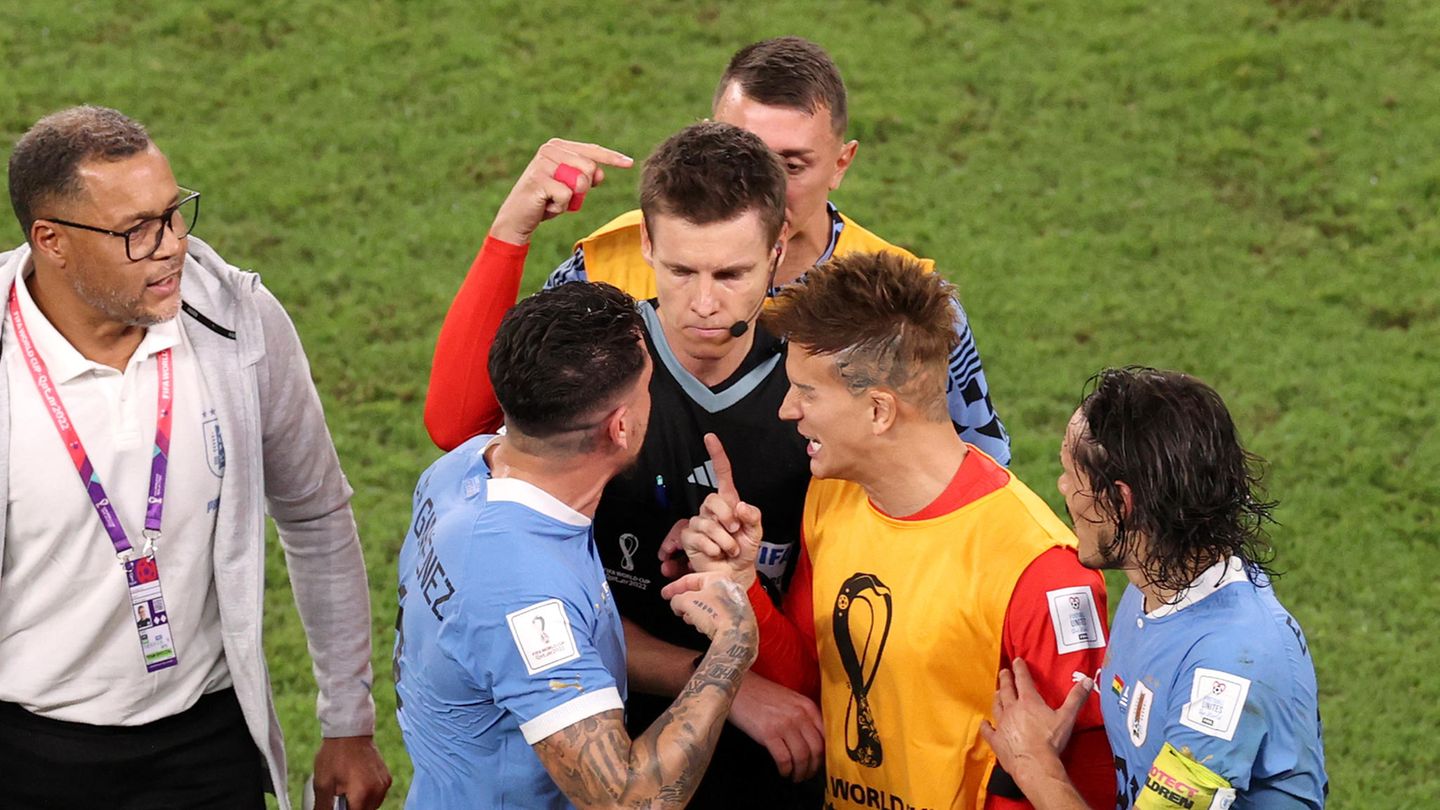Comparison of Refereeing Styles: Usa Uruguay Referee

Usa uruguay referee – The match between USA and Uruguay showcased two distinct refereeing styles. The American referee, Ismail Elfath, adopted a more hands-off approach, allowing the game to flow and only intervening when absolutely necessary. In contrast, the Uruguayan referee, Andrés Cunha, took a more proactive approach, managing the game more tightly and using VAR more frequently.
Communication with Players
Elfath’s communication with players was calm and respectful. He explained his decisions clearly and maintained a dialogue with the captains throughout the match. Cunha, on the other hand, was more confrontational in his communication, often engaging in heated discussions with players and issuing yellow cards for dissent.
Use of VAR
Elfath used VAR sparingly, only consulting it for major decisions. Cunha, however, used VAR more liberally, even for relatively minor incidents. This difference in approach led to some controversy, with some players and pundits criticizing Cunha for overusing VAR.
Strengths and Weaknesses, Usa uruguay referee
Elfath’s hands-off approach allowed the game to flow and kept the players focused on the action. However, it also led to some missed calls and a lack of control in the second half. Cunha’s proactive approach ensured that the game was played fairly and that all incidents were reviewed thoroughly. However, it also led to some unnecessary stoppages in play and a sense of frustration among the players.
Suitability for the Match Context
Elfath’s refereeing style was better suited to the friendly nature of the match. The players were generally well-behaved, and the game did not require a heavy-handed approach. Cunha’s style, on the other hand, would have been more appropriate for a more competitive or high-stakes match.
Historical Context and Controversies

The history of refereeing in matches between the USA and Uruguay dates back to the early 20th century, with the first official match between the two teams taking place in 1916. Over the years, there have been several notable incidents and controversies involving referees in these matches.
Notable Incidents
- In the 1930 FIFA World Cup semi-final between the USA and Uruguay, the referee awarded a controversial penalty to Uruguay, which helped them win the match 2-1. The decision was heavily criticized by the American players and fans, who felt that the penalty was not justified.
- In the 1990 FIFA World Cup Round of 16 match between the USA and Uruguay, the referee sent off American player Paul Caligiuri for a second yellow card, which led to Uruguay winning the match 2-1. The decision was again controversial, with many feeling that Caligiuri’s second yellow card was harsh.
These incidents have contributed to the historical context of the rivalry between the USA and Uruguay, and may have influenced the refereeing decisions in the recent game.
The USA-Uruguay match was marred by a controversial refereeing decision. While the debate rages on, gymnastics enthusiasts eagerly await the upcoming gymnastics olympic trials schedule. This highly anticipated event will showcase the nation’s top gymnasts as they vie for a spot on the Olympic team.
Amidst the excitement and anticipation, the aftermath of the USA-Uruguay match serves as a reminder of the complexities and challenges that often accompany high-stakes sporting events.
As the eyes of the soccer world were fixed on the contentious refereeing decisions during the match between USA and Uruguay, it’s easy to forget the upcoming US Gymnastics Olympic Trials 2024. This prestigious event will showcase the nation’s top gymnasts as they vie for a spot on the Olympic team.
Yet, amidst the excitement, the controversy surrounding the USA-Uruguay referee remains a lingering reminder of the complexities and controversies that often accompany the beautiful game.